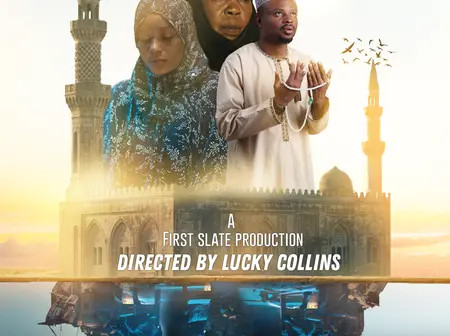First Slate Production’s latest feature, THE CALL, is not a conventional film release. Set in Mombasa, it uses the city’s energy, contradictions, and silences as both canvas and conscience. Its guiding phrase — “Katika Kila Jambo Jifunze Kusema Alhamdulillah” — threads through the story like a quiet reminder of grace.
At the center is Abdul, portrayed by newcomer Athmani Shughuli. His life is caught between the order of the mosque and the lure of Mombasa’s underworld. That fragile balance collapses when his mother is assaulted in a robbery tied to his own gang, leaving him torn between loyalty to his crew and the truth he can no longer ignore.
Standing at the top of the syndicate is Lady Donata (played by Neema Sulubu), a commanding figure who recruits and manipulates young men into crime. Around Abdul’s journey are familiar faces from Kenya’s stage and screen — Ayubu Mshefa, Carolyne Rita, Juma Shibe, and veteran Victor Opondo, who takes on the role of a detective. New talent is also spotlighted, including Hidaya Jamal as Habiba. Legendary actress Sikukuu Khamisi plays Hidaya, a character embodying quiet resilience.
The script, written by Hafsa Addasah, delivers a tense weave of faith, blood ties, and costly secrets. Director Lucky Collins (Collins L. Mturi) grounds the story in realism, unflinching in its look at Mombasa’s underbelly while balancing the harshness with moments of reflection and spirituality.
For Mturi, the project is deeply personal. He describes the film as an attempt to portray the “silent battles” faced by young men in African cities — the daily struggle between survival and conscience, temptation and redemption. To him, Mombasa is not scenery but a living character, from the echo of the adhan in narrow lanes to the contrast of cultural vibrancy and private despair.
Mturi’s career began in 2009 as an intern camera operator on Waridi, before progressing to major television dramas like Mali. Over the years, he worked with leading Kenyan directors including June Ndinya, Henry Lenga, and Victor Gatonye. His eventual return to Mombasa led to projects with Ashiner Pictures, where he handled both cinematography and direction for titles such as Utandu, Almasi, Sumu, Kashfa, Nyota, and Penzi.
After a pause from filmmaking in 2018, THE CALL signals his return — this time with an urgency to tell stories that probe, unsettle, and resonate.
What distinguishes THE CALL is its honesty. It neither romanticizes Mombasa nor reduces it to cliché. Instead, it exposes the tensions of faith, silence, masculinity, and betrayal, giving voice to struggles often hidden.
As African cinema asserts its own narratives with increasing confidence, THE CALL arrives as a bold, contemplative addition — a film that insists even in silence, a voice persists, calling one back to truth.

Leave a Reply